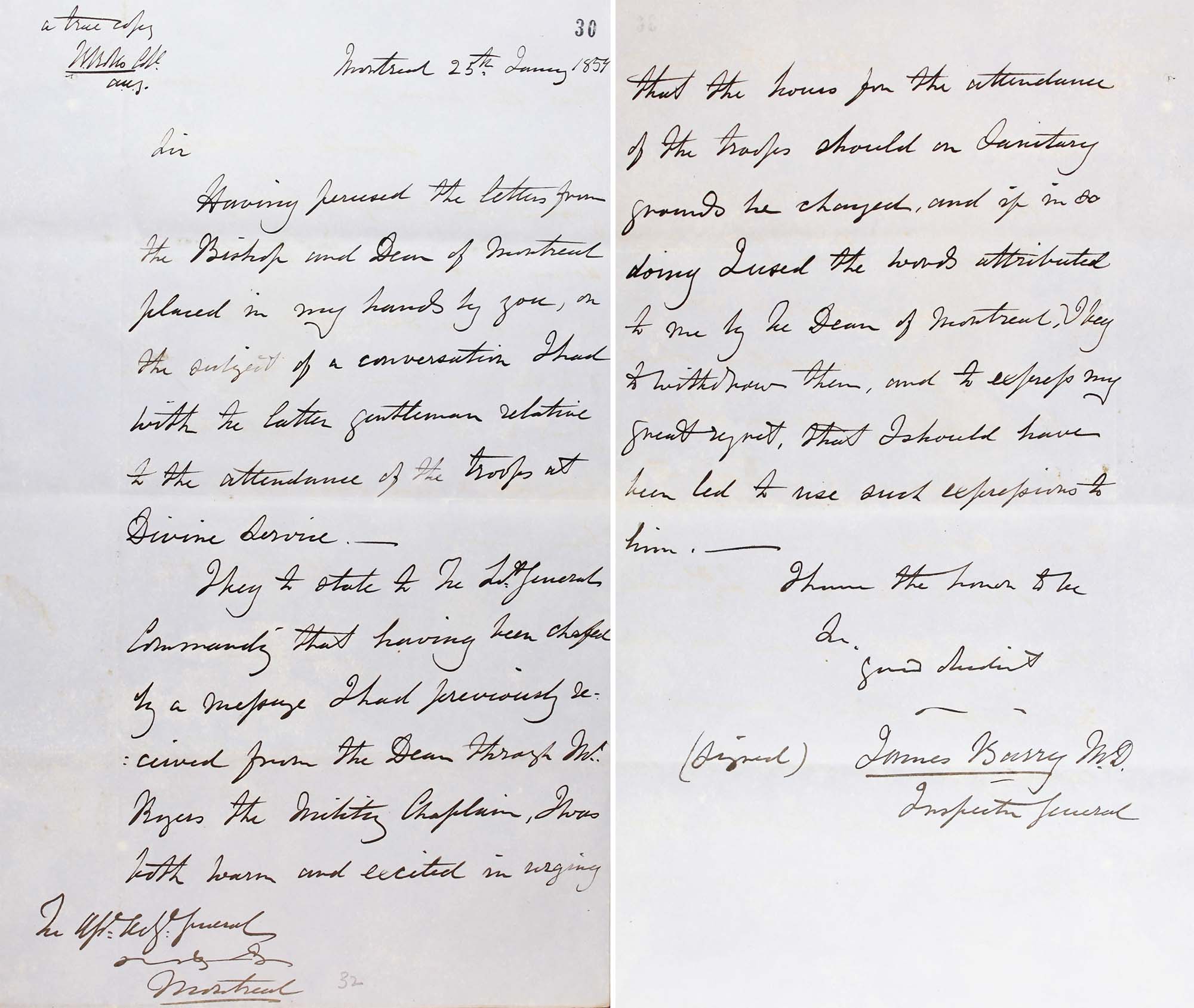
This letter from Dr James Barry to the army General Commanding Officer, 25th January 1859, refers to a disagreement between Dr Barry and two church officials for the Church of St John’s in Montreal, Canada. Catalogue ref: PRO 30/46/18.
Dr James Barry was promoted to the highest rank in the army as Inspector General of Hospitals in the British colony of Canada in 1857.
The disagreement concerned the timing of the church Service held for the army. The churchmen complained to the Bishop of Montreal that Dr Barry had ‘with such violence of manner and language, accused the Archdeacon and me [the Dean] of refusing to allow the military service to be changed from 2pm to 9am, stating that we were callous to the spiritual welfare of her Majesty’s soldiers, with much more to the same effect, and finishing with a threat to publish us in the London Times newspaper’.
Transcript
… Montreal 25th January 1857
Sir,
Having perused the letters from the Bishop and Dean of Montreal placed in my hands by you on the subject of a conversation I had with the later gentlemen relative to the attendance of the troops at Divine Service.
They [to] state [to] the Lieutenant General Commanding that having been changed by a message I had previously received from the Dean, Mr Byers the Military Chaplain, I was both warm and excited in urging that the hours for the attendance of the troops should on sanitary grounds be changed and if in so doing I used the words attributed to me by the Dean of Montreal, I beg to withdraw them, and to express my great regret that I should have been led to use such expressions to him.
I have the honour to be, your obedient
(Signed) James Barry M.D.
Inspector General
- What does the source infer about Dr James Barry’s personality/character?
- What does the letter suggest about his attitude towards the soldiers he was responsible for?
- Can you explain why he might want to change the attendance time ‘on sanitary grounds’?
- How does Dr Barry’s account of the event compare to that of the Church officials quoted in the caption above?
- What evidence is there that the disagreement became more intense?
- What does this source reveal about the nature of personal testimony in history?
